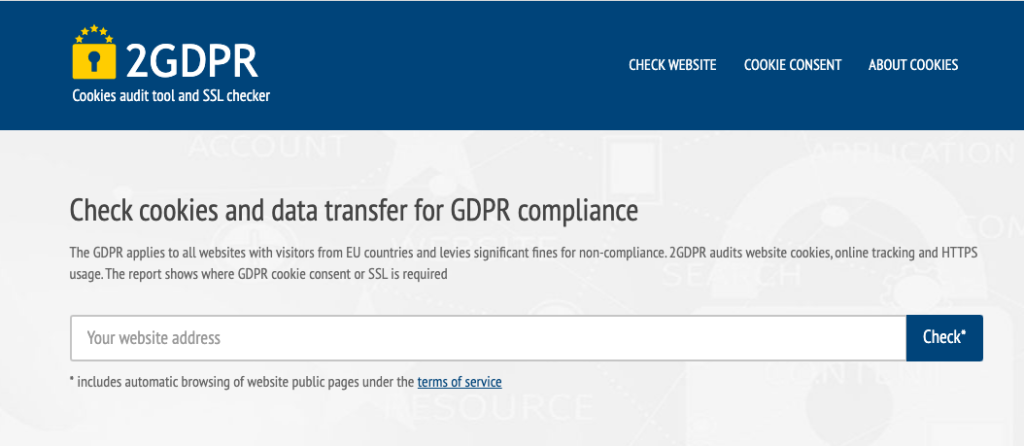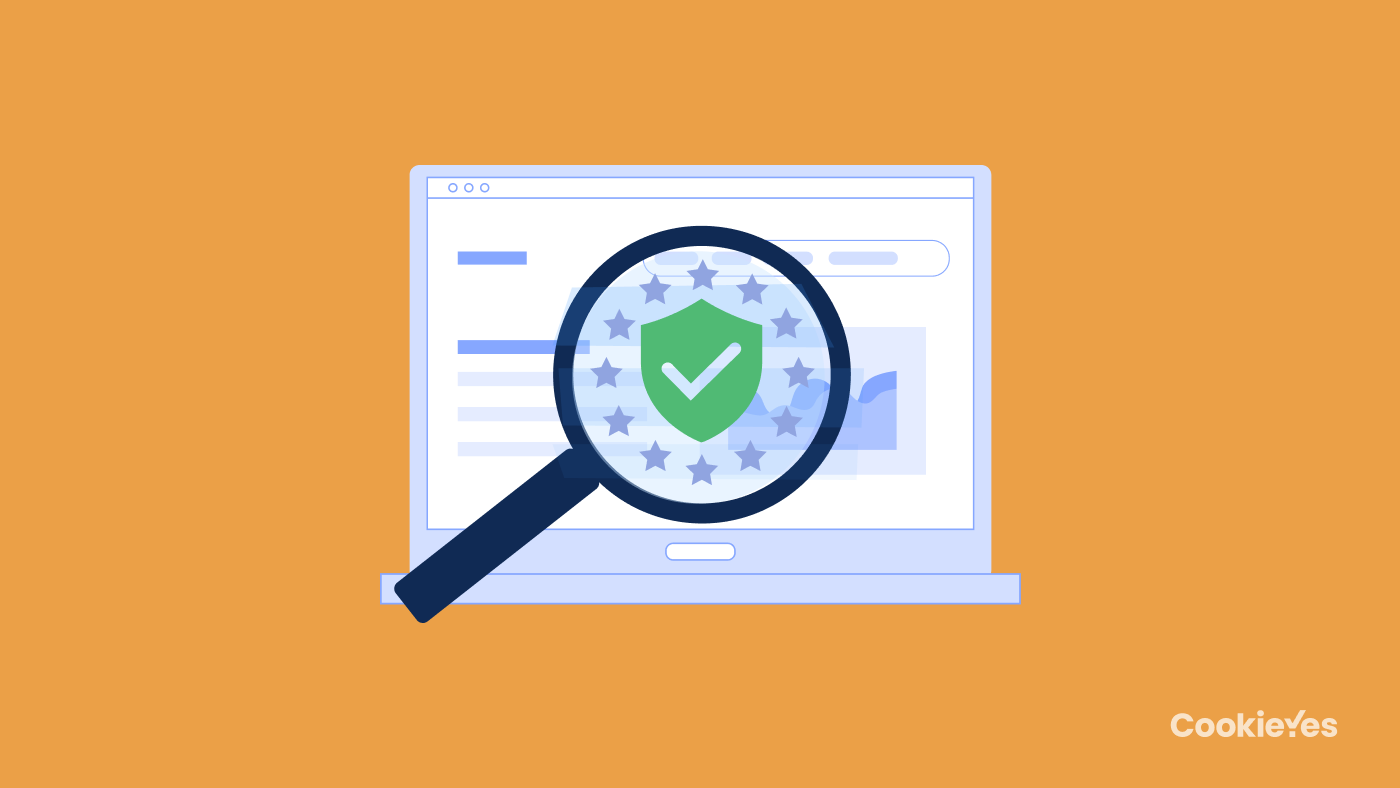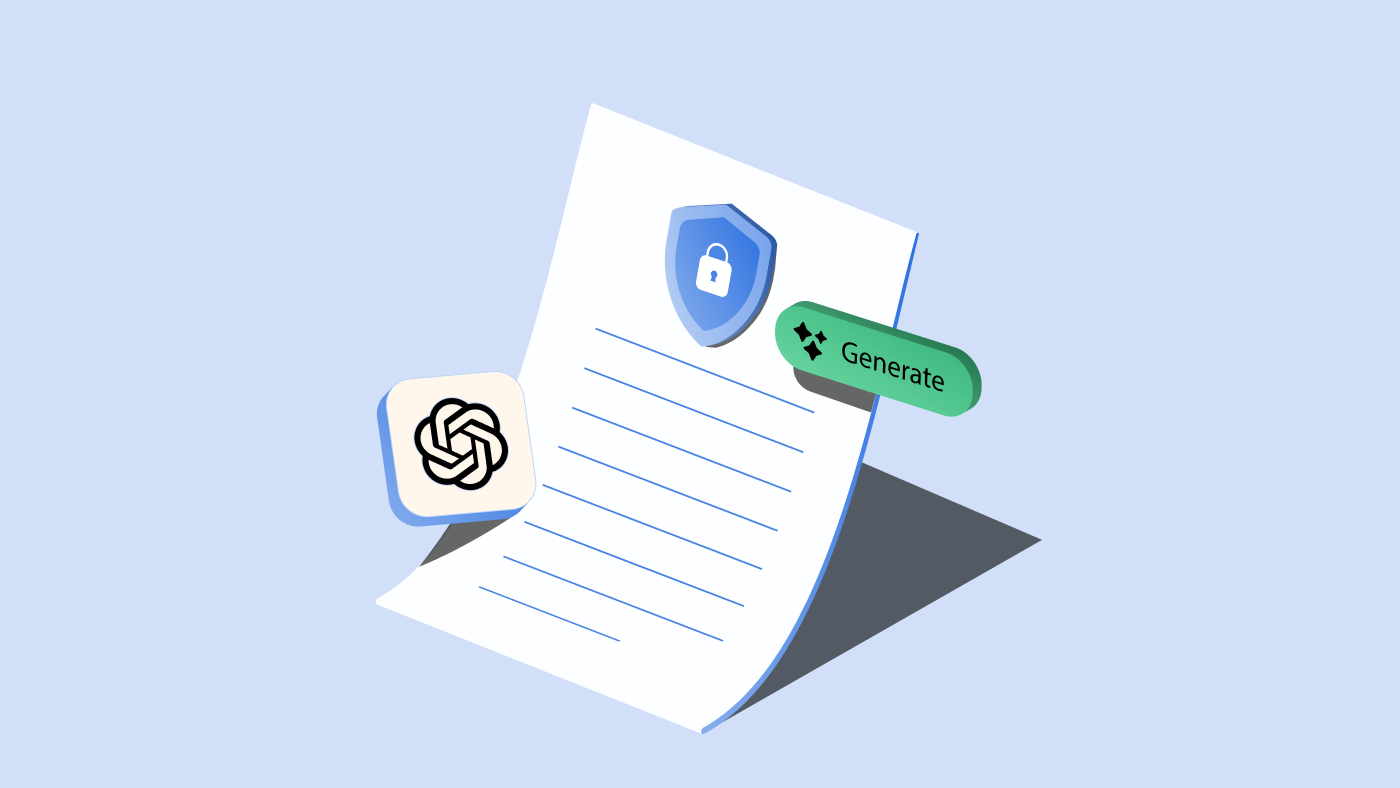The General Data Protection Regulation (GDPR) is a European Union (EU) data protection and privacy regulation. It was implemented on 25 May 2018. Any website that serves people in the EU is subject to GDPR compliance. The GDPR compliance for a website is a seemingly long and complicated task. To be compliant, you need to identify the areas of your website where GDPR applies. Sometimes, websites miss details that could lead to major problems in the future. This article lists some free GDPR compliance checkers that will scan your site and find any problems for you.
Best GDPR compliance checkers
Having a GDPR checklist is always helpful. However, there are many GDPR compliance checkers that scan websites and identify the areas that are not compliant with the GDPR.
We have listed some free GDPR compliance checkers for your website.
Before that checkout CookieYes’ cookie consent manager for foolproof cookie compliance with GDPR:
- Customizable GDPR cookie banner template
- Easy integration with major CMS, like WordPress, Wix, Shopify, and Squarespace
- Detailed cookie checker
- Auto-block third-party cookies before consent
- Multilingual cookie banner in 30+ languages
- Geo-targeted cookie banner for the EU, UK, and US
- Logs users’ cookie consent
- Free privacy policy and cookie policy generators
#1 ICO checklists
Let us start with the UK’s data protection watchdog, Information Commissioner’s Office (ICO). ICO has very comprehensive checklists for both data controllers and data processors to check GDPR compliance.
The checklists have questions about user rights, data processing, data breaches, and data protection impact assessments for a website (data controllers or processors). They can assess themselves for GDPR compliance by completing the checklists.
#2 Blackkite GDPR Compliance Checker
Blackkite presents a 10-question checklist that will help a website determine whether it is GDPR compliant. The questionnaire is about core GDPR requirements that the website must be aware of and follow diligently.
After you complete the questionnaire, it will present the result and its analysis based on it. You can go through it and take the necessary steps to comply.
#3 ImmuniWeb security test
ImmuniWeb is a website security test that includes GDPR compliance. When you enter the website address, it scans the entire site for various compliance.
You get a detailed report on the security test that includes your score for GDPR compliance.
You can download the report as PDF as well.
#4 Sovy
Sovy is a website GDPR and privacy policy scanner. This simple scanner checks for the type of data your website collects, the website policy, and personal data security.

You will get a summary of the GDPR requirements your website needs to fulfill, with the compliance score (%).
#5 2GDPR
2GDPR is a simple GDPR scanner for websites. It doesn’t scan all the web pages but scans for the safety of personal data collection, cookie compliance, data transfer, and risks for breaches.

#6 CookieYes GDPR cookie checker
If you want to start with GDPR compliance for cookies, first, you must know all the cookies used by your website. CookieYes’ free cookie checker automatically scans the website for cookies and presents them in a tabular form with necessary details. The details include the name, domain, description (with purpose), duration, and type of cookies. All you have to do is enter the URL of the website on our site and it will scan for cookies used by the webpage.
CookieYes GDPR cookie compliance for your website
CookieYes is a cloud-based cookie consent management platform (CMP) that offers solutions for GDPR compliance for cookies. Data privacy laws like GDPR and ePrivacy Directive (ePD) mandate that if you use cookies, you must:
- Obtain consent from users before using them
- Provide clear and precise information about them
- Give opt-out option
- Allow users to change their consent at any time
CookieYes cookie consent solution encompasses all of the above and more.
With our cookie consent manager, you can add a customizable cookie banner to any website in just three simple steps! It supports prominent content management platforms such as WordPress, ImagePress, Drupal, Joomla, Squarespace, Wix, and Drupal. To learn how to implement cookie banners on these CMS platforms, read the setup guidelines.
It automatically scans the website for cookies and blocks third-party cookie scripts before receiving user consent. Using the customization options, you can change the banner’s look and content to whatever you deem fit per your website’s requirement.
CookieYes supports 30+ widely spoken languages in the world and auto-translation of the banner. It also adjusts the behavior of the banner depending on the user’s location.
You can also generate a privacy policy and cookie policy for your website using free policy page generators.
You will get to enjoy the full features of CookieYes free for 14 days. After the trial, you may continue using the premium plan or downgrade to the free plan with limited (still awesome) features.
GDPR Cookie Consent plugin for WordPress
CookieYes’ GDPR Cookie Consent is a WordPress plugin to add a cookie banner to your website. Just like the CookieYes application, it helps to manage cookie consent on your WordPress website. You can fully customize the banner per the look of your website. You can also add a cookie table to your cookie policy using shortcodes available in the plugin.
You can integrate the plugin seamlessly with Facebook Pixel, Smash Balloon, Instagram Feed, and Twitter Feed.
The plugin offers everything you need to make your cookie usage comply with the GDPR.
Wrapping Up
There you go. These are some of the GDPR compliance checkers that might come in handy for your website. Please be aware that these online checkers have their limitations. They produce the result after crawling your website. However, there will be some elements that they might miss. It is always advisable to do a thorough audit of your website with help from experts to check the status of your website’s GDPR compliance. Nevertheless, we hope these GDPR compliance checkers and solutions will help you a great deal.
Frequently asked questions
What is GDPR compliance?
GDPR compliance means adhering to the General Data Protection Regulation (GDPR) which is a set of standards for data protection and privacy in the European Union (EU).
Now enforced, these regulations hold corporations responsible for collecting, storing, using, and transferring personal data. EU residents can request the deletion of their personal data; they are also entitled to know where their information is stored and how it will be used. Those who fail to comply with GDPR can face fines up to 20 million euros or 4% of annual global turnover.
What do you need to be GDPR compliant?
If you need to be GDPR compliant, here are some things that you can do:
- Understand your obligations under GDPR
- Keep your privacy policy up to date
- Process data for a legitimate purpose and fairly and transparently.
- Do not collect or store more personal data than necessary.
- Obtain explicit consent to collect personal data
- Allow users to opt out of any form of data collection
- Allow users to exercise their rights under GDPR
- Keep personal data accurate, up-to-date, and safe
- Ensure third-party processors or services are legally compliant
- Ensure data transferred from the EU to non-EU countries will receive adequate protection.
What are the 7 principles of GDPR?
The 7 principles of GDPR are:
- Lawfulness, fairness and transparency: Personal data should be processed fairly and lawfully with individual consent or in the pursuit of legitimate interests.
- Purpose limiation: Personal data must not be used for purposes other than those specified when the data was collected.
- Data minimisation: Personal data should be collected only when it is relevant to the purpose and should be limited.
- Accuracy: Personal data should be accurate and kept up to date.
- Storage limitation: Personal data should be held for only as long as it is necessary.
- Integrity and confidentiality: Personal data should be protected by implementing technical and organizational measures.
- Accountability: Organization must be able to demonstrate that it is compliant with the GDPR principles.
What is GDPR compliance in the US?
GDPR is a comprehensive EU data privacy law that regulates the processing of the personal data of EU residents by organizations inside and outside the EU. It applies not just to EU organizations, but also to foreign organizations if they collect, manage, or process personal information from people living in the EU. Therefore, many US companies are subject to GDPR compliance.
Such companies have to follow all GDPR requirements, especially requirements for data transfer from the EU to the US, which was redefined by the Schrems II judgment.




